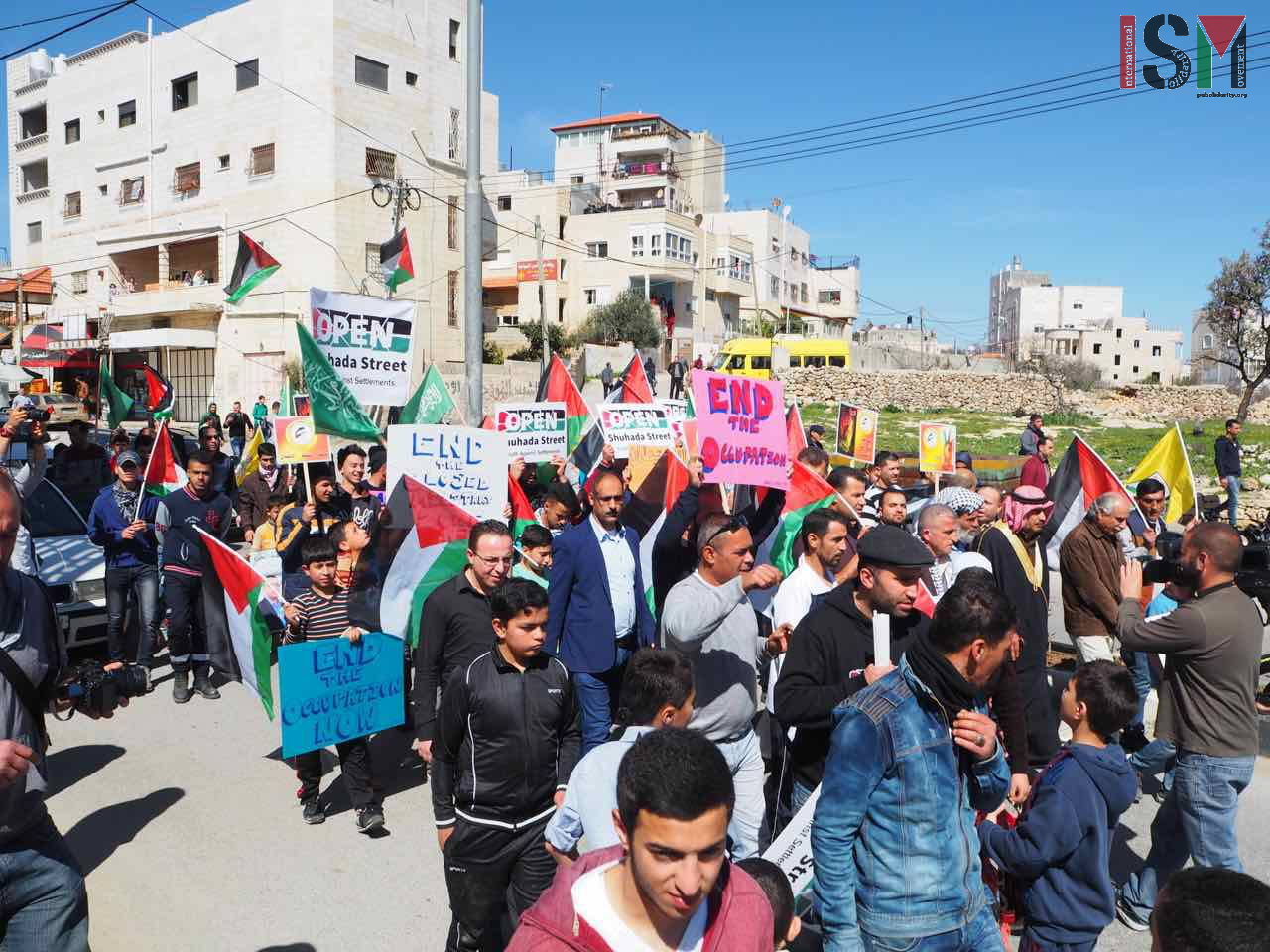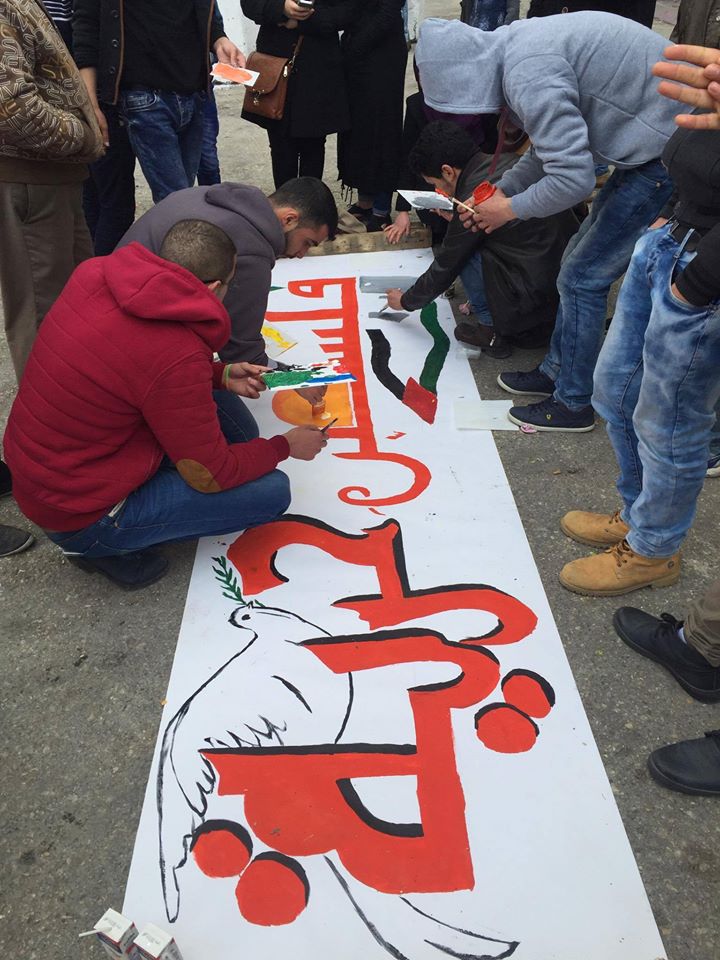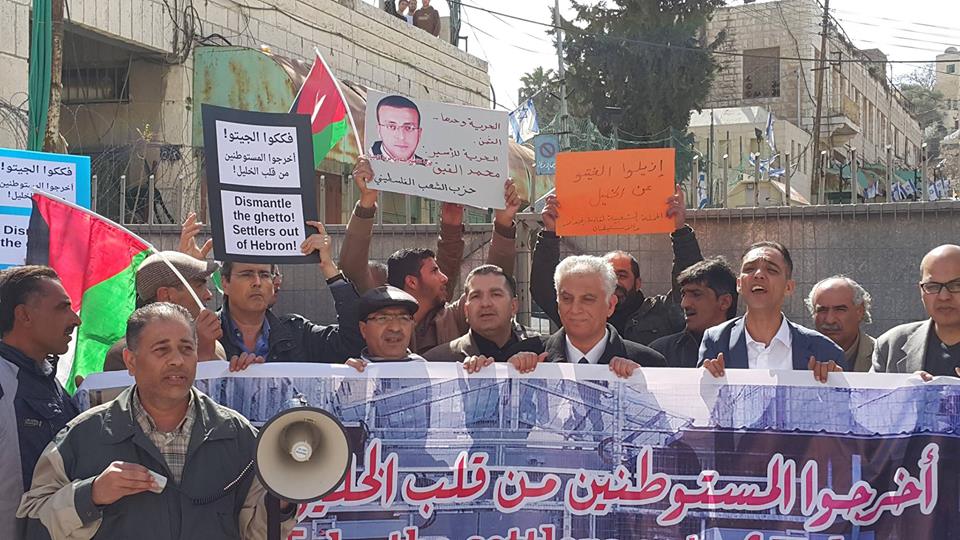Tag: Settlement
-
Demonstrators call for end to unjust restrictions in Hebron 22 years after Ibrahimi mosque massacre
26th February 2016 | International Solidarity Movement, al-Khalil team | Hebron, occupied Palestine On 26th February 2016, Palestinians in occupied al-Khalil (Hebron) jointly commemorated the Ibrahimi Mosque massacre and protested against the closure of Shuhada Street and the illegal Israeli military occupation. The peaceful demonstration, organised by the local activist group Youth Against Settlements as…
-
Peaceful painting-activity met with violence by Israeli army
21st February 2015 | International Solidarity Movement, Al-Khalil team | Hebron, occupied Palestine On Sunday the 21st of February, the people of Hebron along with fellow activists gathered for part of a week long campaign against occupying Israel to show solidarity and oppose the closure of Shuhada Street to the Palestinian people. Shuhada Street has…
-
Israeli forces use excessive violence on peaceful demonstration in Hebron
20th February 2016 | International Solidarity Movement, al-Khalil team | Hebron, occupied Palestine On 20th February 2016, the Hebron Defence Committee, the Human Rights Defenders Group and other popular struggle committees organised a demonstration under the motto ‘Dismantle the Ghetto, take the settlers out of Hebron’ in occupied al-Khalil (Hebron). Israeli forces attacked the peaceful…



